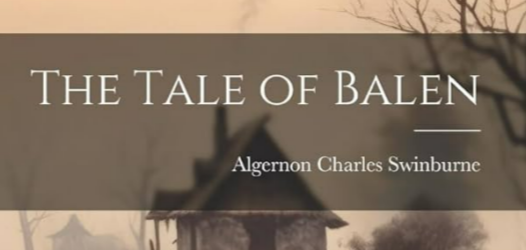Chapter III-The tale of Balen
byChapter III – The Tale of Balen opens with an air thick with enchantment and grief, where valor is not shielded from the sharp turns of fate. In this chapter, we follow Balen through the echoing halls of Arthur’s court and into a storm of confrontation and consequences. The narrative moves swiftly, filled with foreboding and whispers of past sorrow as Balen, praised for strength, must now answer for choices made with the weight of memory pressing down.
In the king’s presence, tensions rise when the Lady of the Lake claims her recompense—not riches or favor, but the life of either Balen or the maiden who brought him the enchanted sword. Her demand, cloaked in grace but rooted in vengeance, shocks the court and sparks a moment that forever shifts the tide of Balen’s story. Acting upon his pain and sense of justice, Balen turns his blade on the sorceress responsible for his mother’s death, silencing her cruelty but staining his hands in the king’s hall.
Arthur’s reaction is swift—he does not deny Balen’s suffering, yet rebukes him for allowing wrath to rule in a place meant for reason. Though not banished outright, Balen is urged to leave, not as punishment, but as space for reflection and redemption. Before departing, he instructs his squire to carry the sorceress’s head across the northern lands, a grim token of justice delivered and a life reclaimed from years of torment.
The path forward is far from peaceful. Balen, determined to restore his honor and serve the realm, sets his sights on King Ryons, a warlike ruler whose defiance of Arthur poses a threat to peace. Meanwhile, in the same court, Sir Launceor’s envy festers; he seeks permission to confront Balen, believing his own pride has been slighted and hoping battle will restore his sense of worth.
Unknown to them, Merlin watches quietly, his mind already piecing together threads of a darker design. He speaks in hushed tones of deception, drawing a tangled map of intentions hidden beneath the surface. The maiden who first offered the sword, once seen as an ally, is revealed to be another piece in a scheme orchestrated to draw Balen into ruin.
What unfolds is more than coincidence; it is manipulation shaped by magic and bitterness, where the gifted sword was not meant to empower Balen, but to destroy him. The sorceress and the Lady of the Lake were bound by history, rivals in a deeper game of retribution, using Balen as an unwitting pawn. Merlin, aware of this, mourns what cannot be undone, for even a knight as noble as Balen cannot resist the pull of destiny wrapped in steel and sorrow.
This chapter is steeped in motifs of betrayal cloaked in beauty, where those who seem to guide may, in truth, mislead. Arthur’s court, once a symbol of unity, becomes a place where trust unravels and alliances fracture beneath the weight of hidden grievances. Balen, despite his loyalty, finds himself isolated not by disloyalty but by the consequences of acting justly in a world where justice is rarely clear.
Modern readers may see reflections of larger truths—how righteous anger can be both a strength and a flaw, and how manipulation often wears the mask of benevolence. The interplay between personal honor and external perception adds complexity to Balen’s journey, making him not only a figure of legend but one of profound humanity. His victories are earned, yet always tinged with loss, as if fate demands balance for every gain.
Historically, such tales capture the nuanced morality of medieval literature, where absolutes are rare, and characters are driven as much by emotion as by duty. The magical sword, a gift that should have symbolized divine favor, instead becomes a conduit for strife, reflecting how even power cannot shield against suffering. Through Merlin’s insight, we understand that in Balen’s tale, the lines between hero and pawn blur, and every action carries the weight of someone else’s scheme.
In the end, this chapter reminds us that destiny is rarely straightforward, and that the path of the noble is often the most burdened. Balen moves forward with purpose, but his future now walks hand-in-hand with a curse that was not chosen but inherited. His story continues, heavy with truth: that even the most honorable intentions can be twisted by those who see opportunity in virtue.

